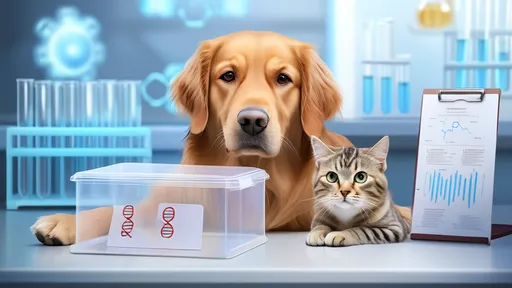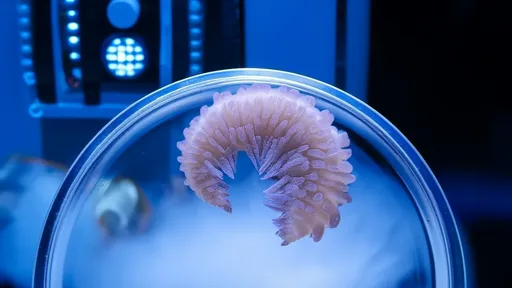The world of pet care has taken a revolutionary leap forward with the advent of genetic testing for dogs and cats. What was once confined to human medicine is now becoming increasingly accessible to our furry companions. Saliva-based DNA tests are emerging as a powerful tool for identifying genetic disease risks in pets, offering owners unprecedented insights into their animal's health predispositions. This cutting-edge technology is reshaping how we approach preventive veterinary care, allowing for early interventions that could significantly improve quality of life.
Veterinary genetic testing works by analyzing specific markers in an animal's DNA that are associated with certain hereditary conditions. Unlike traditional diagnostic methods that typically identify existing health issues, these tests can reveal potential problems long before clinical symptoms appear. The process is remarkably simple for pet owners – typically requiring nothing more than a cheek swab sample that can be collected at home and mailed to a specialized laboratory. Within weeks, detailed reports outline any genetic variants that may predispose the animal to particular diseases.
The science behind these tests is both sophisticated and continually evolving. Laboratories examine hundreds of genetic markers linked to conditions ranging from relatively mild predispositions to life-threatening disorders. For dogs, this might include testing for degenerative myelopathy, a progressive spinal cord disease, or various forms of inherited heart conditions. Cats can be screened for genetic variants associated with polycystic kidney disease or hypertrophic cardiomyopathy. The accuracy of these tests has improved dramatically as veterinary genetic research expands our understanding of canine and feline genomes.
One of the most significant advantages of genetic testing is its potential to transform preventive veterinary care. When owners and veterinarians are aware of a pet's genetic risks, they can implement tailored wellness plans that may delay onset or reduce severity of certain conditions. For example, a dog predisposed to exercise-induced collapse might benefit from modified activity routines, while a cat with genetic markers for kidney issues could start on specialized diets earlier in life. This proactive approach represents a paradigm shift from reactive treatment to truly preventive medicine in veterinary practice.
Ethical considerations naturally accompany this emerging technology. Some pet owners worry about the psychological impact of knowing their animal might develop serious conditions later in life. Veterinary behaviorists suggest that the benefits of preparedness generally outweigh these concerns, as early knowledge allows for better planning and care strategies. There are also discussions within the veterinary community about how genetic information should be used in breeding programs, with most experts advocating for responsible use that improves breed health without unnecessarily limiting gene pools.
The market for pet genetic testing has expanded rapidly in recent years, with several companies now offering comprehensive panels that screen for dozens or even hundreds of conditions. Pricing varies significantly depending on the breadth of testing, ranging from basic breed identification services to extensive health risk assessments. While some veterinary professionals caution that not all available tests have equal scientific validation, the field is becoming more standardized as research progresses and regulatory oversight increases.
Looking ahead, the potential applications of pet genetic testing continue to grow. Researchers are exploring how genetic data might help predict individual responses to medications, allowing for truly personalized veterinary treatment plans. There's also exciting work being done in nutrigenomics – studying how specific nutrients interact with genes to influence health. As the technology becomes more affordable and widespread, it may become a standard part of routine veterinary care, much like vaccinations and annual check-ups are today.
For pet owners considering genetic testing, veterinarians recommend starting with a conversation about what they hope to learn and how they might use the information. While the tests can provide valuable insights, they're not crystal balls – having a genetic predisposition doesn't guarantee a condition will develop, just as lacking markers doesn't provide absolute protection. What these tests do offer is knowledge, and in the world of pet healthcare, knowledge translates to power – the power to provide our beloved companions with the longest, healthiest lives possible.

By /Aug 7, 2025

By /Aug 7, 2025

By /Aug 7, 2025

By /Aug 7, 2025

By /Aug 7, 2025

By /Aug 7, 2025

By /Aug 7, 2025

By /Aug 7, 2025

By /Aug 7, 2025

By /Aug 7, 2025

By /Aug 7, 2025

By /Aug 7, 2025

By /Aug 7, 2025

By /Aug 7, 2025

By /Aug 7, 2025

By /Aug 7, 2025

By /Aug 7, 2025

By /Aug 7, 2025

By /Aug 7, 2025

By /Aug 7, 2025